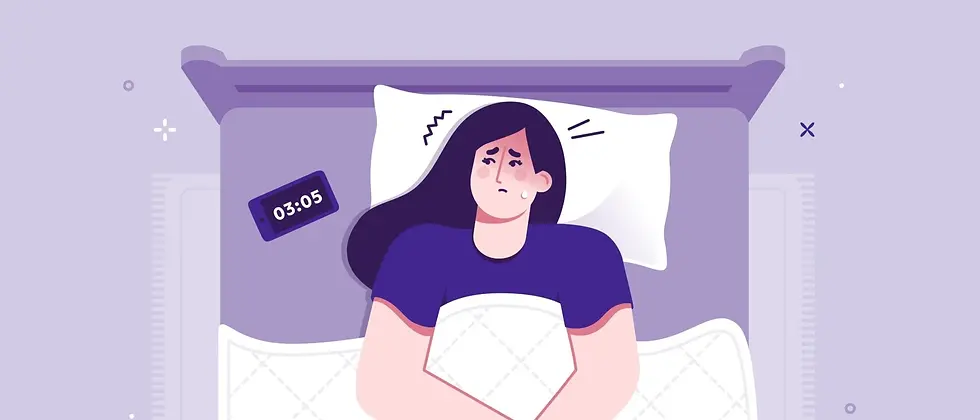Benzodiazepine Prescriptions - Understanding the Hidden Risks and Dangers
- Support Team
- Apr 10, 2024
- 3 min read
Updated: Jul 20, 2024

In the practice of medicine, benzodiazepines like Alprazolam (Alprax or Trika ®), Chlordiazepoxide (Librium®),Diazepam (Valium®), Restyl, Lopez, Calmpose, Serenace, Rivotril, Larpose etc. have long been a staple medication for managing conditions like anxiety, insomnia, and certain mood disorders. However, beneath their surface of providing temporary relief lies many dangers that often go overlooked. While these drugs can offer immediate relief for some patients, their long-term consequences can be severe and even life-altering.
Ever since I have been learning the importance of taking a 3- stage assessment during my training with the distance education department of CMC, Vellore. I have become more aware and have come across many patients, especially senior citizens who have been put on these drugs by their physician because they have been suffering from chronic insomnia. Unfortunately most of these patients have never reviewed these medications and have been taking them for many years.

Benzodiazepines, commonly known as benzos, work by enhancing the effect of gamma-aminobutyric acid (GABA), a neurotransmitter that inhibits brain activity. This results in a calming effect on the central nervous system, which can alleviate symptoms of anxiety and promote sleep. However, the very mechanism that makes these drugs effective also contributes to their potential for abuse and dependence. Over time, individuals may find that they require higher doses to achieve the same therapeutic effects, leading to a cycle of escalating use. Dependence can quickly spiral into addiction, as individuals may experience withdrawal symptoms when attempting to reduce or discontinue their use of the drug. These withdrawal symptoms can range from mild anxiety and insomnia to severe seizures and psychosis, making it challenging for individuals to stop using benzodiazepines without professional help.
Benzodiazepines are also known to impair cognitive function and motor skills, increasing the risk of accidents and injuries, especially when combined with alcohol or other central nervous system depressants. Long-term use of these drugs has also been associated with memory impairment, dementia, and cognitive decline in older adults, raising concerns about their safety, particularly in this vulnerable population.

Benzodiazepines also carry a significant risk of overdose, particularly when combined with other substances for example with opioids, in particular, it can be lethal, as both drugs depress respiratory function, leading to respiratory failure and death. The rising prevalence of polydrug abuse further increases this risk, highlighting the need for caution by all medical practitioners when prescribing benzodiazepines, especially in patients with a history of substance abuse.
As healthcare providers we must exercise caution when prescribing benzodiazepines and to explore alternative treatment options whenever possible. It is vital that we spend a few minutes educating our patients about various modalities of therapies, mindfulness-based interventions, and other non-pharmacological approaches which are now scientifically proven to be extremely beneficial. These have shown promising results in treating anxiety and insomnia without the risks associated with benzodiazepine use. We owe this to our patients and their families. We must commit ourselves to carefully weigh the risks versus benefits and work collaboratively with our patients to develop comprehensive treatment plans that prioritize safety and long-term well-being. We must persist in bringing about awareness in our patients of the dangers associated with benzodiazepine use, and educate them about developing healthy coping skills to ease their anxiety, along with sleep hygiene. Thus improving outcomes for individuals seeking relief from some common mental health conditions.
Let us beware and make aware!
Dr. Vinita Mathew,
Family Physician,
Counsellor & Managing Director,
Ashok & Ashok One Hospitals.
At Ashok One Hospital, the Support Team is available to help patients in their journey to wellness, supporting and educating them with healthy coping skills and sleep hygiene.
Connect with our Support Team today @ 8591001826







THANKS SHALOM ASHOK1
IN ADDITION SOME BENZODIAZAPINES SUCH AS NITRAZEPAM CAUSES KIDNEY DAMAGE EVEN IN YOUNG HEALTHY PERSONS WITH LONG TERM USE
THE TRUTH